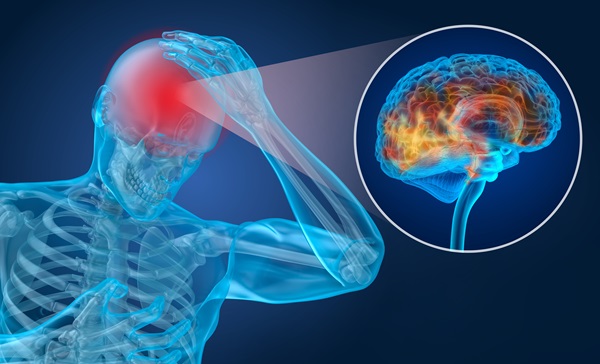
National Concussion Awareness Day is more than just a calendar mark. It is a reminder of the importance of addressing concussions and traumatic brain injuries (TBIs) suffered due to negligence. This year, National Concussion Awareness Day falls on September 20—the day provides an opportunity for healthcare professionals, athletes, caregivers, and individuals alike to discuss the impact of concussions and raise awareness about these often-overlooked injuries.
While concussions are most commonly associated with sports accidents, they can also result from motor vehicle collisions, falls, and even bicycle accidents. Regardless of the cause, it is important to recognize the symptoms and act quickly if you've suffered from a concussion.
This day provides a platform to spread crucial information and start meaningful conversations about concussions—conversations that could save lives.
What is a concussion?
A concussion is a mild form of TBI that affects brain function. It happens when an external force causes the brain to move rapidly back and forth inside the skull. Symptoms can include confusion, dizziness, headaches, mood changes, and even unusual emotional outbursts. These effects typically last up to two weeks, though in some cases, they can persist for months.
If a concussion goes undiagnosed and untreated, it could have serious, long-lasting consequences. That is why getting an immediate evaluation from a qualified medical professional is important to rule out any life-threatening complications. Do not let the “mild” in “mild traumatic brain injury” fool you—this is one condition that requires attention.
What causes concussions?
Car accidents
Car accidents are one of the leading causes of concussions. During a collision, the rapid deceleration or impact can cause the brain to move violently inside the skull, even if the head doesn’t hit a surface directly. This sudden, jarring motion can result in a concussion. Whiplash, a common injury in car crashes, is often associated with concussions because the force from the neck movement also affects the head and brain.
Assaults or physical violence
Concussions can also occur from physical violence or assaults, where a person is struck in the head, or their head is forced into a hard surface. Domestic violence, fights, or any situation where the head takes a significant hit can result in a concussion.
Slip and fall accidents
Slip and falls, especially on slippery or uneven surfaces, can lead to serious head injuries, including concussions. Whether it is a fall on a wet floor or tripping over an obstacle, the impact from hitting the ground or an object can cause the brain to strike the inside of the skull. Slip and falls are particularly dangerous for older adults, who are more prone to falls and head injuries due to age-related balance issues.
Workplace accidents
Head injuries can happen in any workplace setting. However, industries such as construction, manufacturing, and warehousing pose risks for head injuries. Workers can suffer concussions from falls, being struck by falling objects, or equipment malfunctions. Even in less physically demanding jobs, accidents like slipping on stairs or falling off ladders can lead to concussions.
Pedestrian and bicycle accidents
Pedestrian and bicycle accidents often lead to concussions. These vulnerable road users don't have the protection afforded by vehicle frames, airbags, and seatbelts. Even with a helmet, a strong enough impact in a bicycle accident can still result in a concussion.
Why should I be concerned about concussions?
Many people don’t realize they have suffered a concussion until days or even weeks after a car accident or other personal injury event. Symptoms can develop slowly, which is why it's important to seek medical attention as soon as possible—even if you feel fine at first.
Documenting your injuries is also important, not just for your health but also for seeking compensation. Be sure to keep track of all medical bills, rehabilitation costs, and other expenses related to your recovery. Ignoring these injuries could leave you with long-term effects—and financial burdens—down the road.
How do I observe National Concussion Awareness Day?
Observing National Concussion Awareness Day can take many forms, but here are a few simple ways you can contribute:
- Learn the basics: Familiarize yourself with the signs and symptoms of concussions. Knowing how to recognize these symptoms in others could make a world of difference.
- Share your story: Social media is a powerful tool. Use your platform to share personal stories about concussions—whether your own or someone else's—to raise awareness.
- Join a campaign: The Brain Injury Association of America leads an annual Brain Injury Awareness campaign, encouraging people to spread information and participate in activities to support those affected by TBIs.
What should I do if I suffered a concussion due to someone else's negligence?
If you have suffered a concussion due to someone else’s negligence, you could be in for a lengthy recovery, costly medical treatments, lost wages, and reduced quality of life. Despite these challenges, insurance companies only have one thing in mind—keeping their costs down.
At The Law Offices of Casey D. Shomo, Mr. Shomo and his dedicated legal team can take on the insurance companies and help you get the compensation you rightfully deserve. Our law firm has extensive experience handling TBI cases, whether caused by car accidents, slip and falls, or other incidents linked to negligence. We have a proven track record of obtaining meaningful results for our clients, including:
- Over $8.2 million for a client who suffered severe injuries in a semi-truck collision.
- More than $3.3 million for a pedestrian who sustained multiple trauma after being struck by a vehicle.
- $1.2 million for the family of a motorcyclist who died after being hit by a pickup truck.
Contact us today for a free consultation, and let us help you take the next steps toward justice and financial recovery. We work on a contingency fee basis, so you do not have to pay upfront for our services. We only get paid if you're fully compensated.
